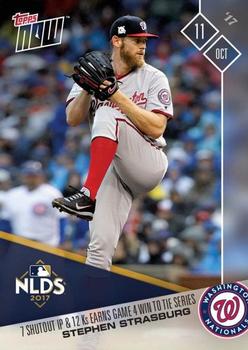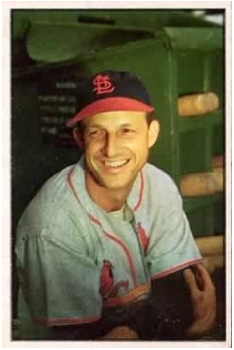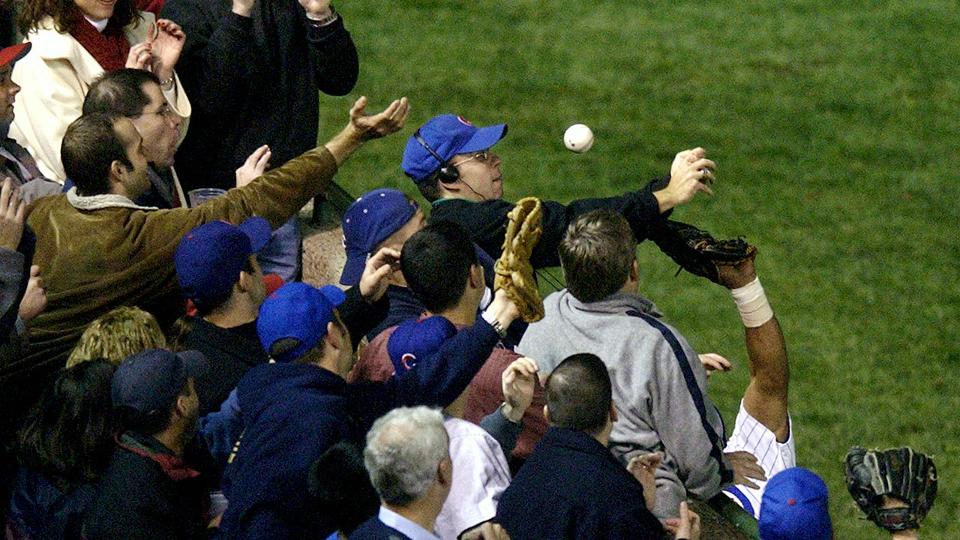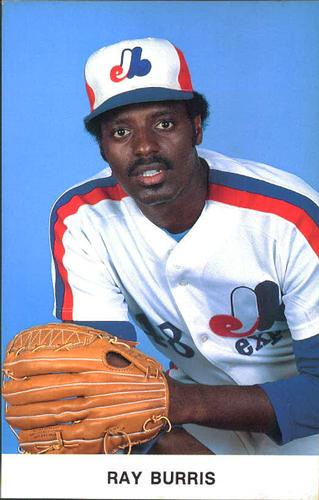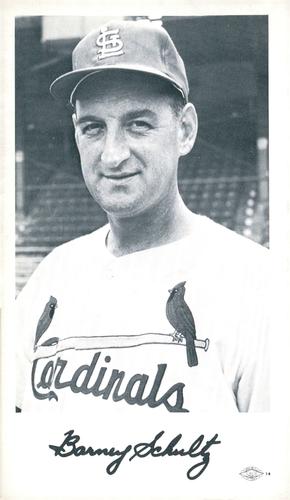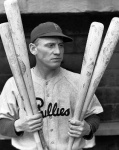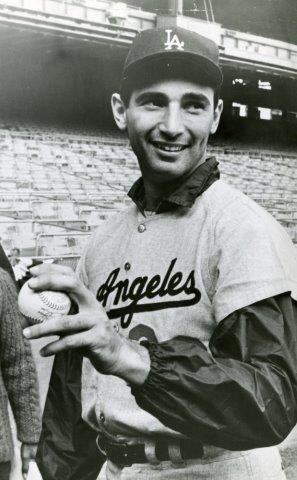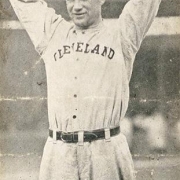October 14, 1908: Cubs win World Series for second year in a row
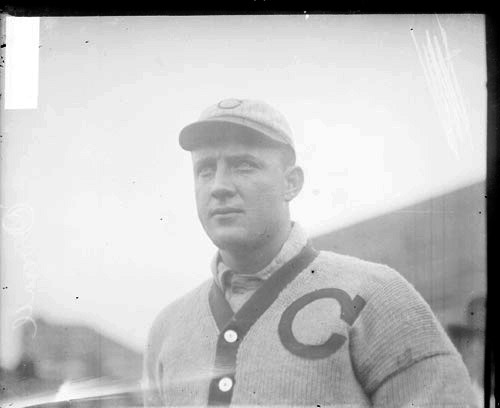 For the second season in a row, the Chicago Cubs claimed the World Series title in 1908 by besting the Detroit Tigers in five games. Cubs pitcher Orval Overall dominated the Tigers, allowing three hits in a complete-game, 2-0 victory. Overall became just the second post-1900 pitcher to strike out four batters in an inning, and the first one to do so in the postseason.1
For the second season in a row, the Chicago Cubs claimed the World Series title in 1908 by besting the Detroit Tigers in five games. Cubs pitcher Orval Overall dominated the Tigers, allowing three hits in a complete-game, 2-0 victory. Overall became just the second post-1900 pitcher to strike out four batters in an inning, and the first one to do so in the postseason.1
The American League champion Tigers were hosting the National League champion Cubs at Bennett Park, down three games to one, and just 6,210 spectators were present to see Chicago retain “the title as the champions of the world.”2 Right away, the Cubs jumped on Detroit starter Wild Bill Donovan. With one out in the top of the first, Johnny Evers, Frank Schulte, and Frank Chance hit back-to-back-to-back singles, with Evers scoring on Chance’s hit. That was the only run the Cubs needed.
Overall was a bit shaky on the mound in the bottom of the first. Matty McIntyre walked to start the inning for Detroit. Charley O’Leary struck out, and Sam Crawford followed with a liner to center. It was headed toward the center-field crowd, and McIntyre had to wait to see if it would be caught. Center fielder Solly Hofman raced to the ball but could not make a clean catch. Crawford had a long single, and McIntyre had to settle for standing on second base. Overall then struck out Ty Cobb for the second out. (Cobb fouled off two bunt attempts and then fanned. Claude Rossman swung at a curveball for strike three (and out number three), but the ball got away from catcher Johnny Kling and Rossman was safe at first. I.E. Sanborn of the Chicago Tribune observed, “[T]he third strike on Claude was a drop so sharp and pronounced that it struck the ground and shot past Kling to the stand.”3 McIntyre and Crawford each each moved up a base as well. With the bases loaded and two outs, Germany Schaefer came to bat, and Overall struck him out as well for the inning’s “final” final out. The Tigers had left three men on base, and Overall had struck out four batters in the inning.
Overall walked his mound counterpart, Donovan, with two outs in the second. Wild Bill caught the Cubs napping and stole second without a throw from Kling, but Overall retired McIntyre on a fly ball, stranding the baserunner.
In the Cubs’ fifth, Tinker led off with hit a Texas leaguer to short center and “O’Leary … performed a circus catch with a cartwheel finish.”4Kling then walked and Overall sacrificed him to second. Jimmy Sheckard walked and Evers doubled to center field, plating Kling. In the bottom of the fifth, Detroit put together a small rally, but to no avail. Bill Coughlin singled to lead off as his grounder to third took an awkward bounce. Donovan struck out, then McIntyre doubled “into the left field crowd,”5 lining the ball between Chance and first base, and keeping Coughlin at third base. O’Leary lifted a fly ball to short center, but it was not deep enough for Coughlin to tag up, and Hofman made a great throw to home plate. Overall ended the threat by striking out Crawford. The Chicago pitcher walked Cobb in the sixth inning, making him the last man to reach base for the Tigers. The final three innings of the game “were of the one, two, three variety,” Sanborn noted.6
Evers led off the eighth inning with an infield single. He moved to second on a sacrifice and Chance singled to left, advancing Evers to third. With a full count on Harry Steinfeldt, the Cubs tried a double steal. Steinfeldt struck out and Evers was tagged out at the plate, “completing an unusually fast double play.”7
According to the Chicago Tribune, after the final out was secured, “the band of Cub rooters gathered in the grand stand and let out a wild and prolonged yell, while the Tiger adherents folded their banners and hid their megaphones under their coats.”8 The Cubs were “twice champions of the earth,”9 and according to the Detroit Free Press, “the players may now go home to hibernate.”10 Evers and Chance provided the offensive spark Chicago needed, each going 3-for-4 with a run batted in. Evers scored the game-winning run in the first inning. The time of the deciding contest was a mere hour and 25 minutes.
After the game, Cubs skipper Chance remarked, “Our team is the greatest that I ever saw on a baseball field. I firmly believe that no team in the world could have beaten us with the kind of ball we played during the world’s championship series.”11 Game Six was to be played in Chicago on October 16, if needed. The Tribune’s Sanborn wryly observed, “Those who hold reservations for tomorrow’s game in Chicago can retain them for the 1909 series. They will need them.”12 But Sanborn put a slight damper on his prediction: “Not in a thousand years has a team been compelled to fight as hard for its titles as the Chicago team.”13
The Series ended on Wednesday. The Tigers stayed in town and the two teams played each other in exhibition games on Saturday and Sunday, to “add a material sum to their earnings. All the receipts will be distributed among the players.”14
The Cubs pitchers held the Tigers batters scoreless over the final 19 innings of World Series play. The Tigers scored in only 7 of 45 innings in the Series. Overall allowed only seven hits and two earned runs in 18⅓ innings pitched, for a 0.98 earned-run average. At the plate he went 2-for-6. Both of his 1908 World Series victories came at the expense of Detroit’s Donovan.
The Cubs and Tigers were perennial participants in the first decade of the World Series. The Cubs had lost to the White Sox in six games in 1906, then beat the Tigers in 1907 and 1908. In 1909 Detroit won its third consecutive American League crown, but lost the World Series to Pittsburgh in seven games. In 1935 the Tigers atoned for their past failures by defeating the Chicago Cubs in six games in the World Series, for their first world championship.
Overall was the first pitcher to fan four batters in a postseason game. On October 12, 2013, more than 100 years after Overall’s feat, Detroit’s Anibal Sanchez struck out 12 Boston Red Sox batters, including four in the first inning, without yielding a hit through six innings in Game One of the 2013 American League Championship Series. As of the beginning of the 2016 season, Chuck Finley held the record for most times (3) striking out four batters in an inning.15
Notes
1 “Four K’s in One Inning,” http://mlb.mlb.com/mlb/history/rare_feats/index.jsp?feature=four_strikeouts_inning. New York Giants pitcher Hooks Wiltse struck out four Cincinnati Reds batters in the fifth inning on May 15, 1906. On Ocober 4, 1888 the Giants’ Ed Crane struck out four Chicago White Stockings batters in the fifth inning.
2 “Chicago Club Wins World’s Pennant,” New York Times, October 15, 1908: 7.
3 I.E. Sanborn, “Cubs Supreme in Baseball World,” Chicago Tribune, October 15, 1908: 2.
4 Ibid.
5 “Chicago Club Wins World’s Pennant.”
6 “Cubs Supreme.”
7 Ibid.
8 “Cubs Supreme.” Retrosheet shows Schmidt grounding out, catcher to first, for the game’s final out. However, Sanborn of the Chicago Tribune writes that Schmidt fouls out to catcher Kling for the final out.
9 Joe S. Jackson, “Series Ends With Fifth,” Detroit Free Press, October 15, 1908, 1.
10 Ibid.
11 “Cubs Supreme.”
12 Ibid.
13 Ibid.
14 “Cubs and Tigers to Play Again,” New York Times, October 15, 1908, 7.
15 “Four K’s in One Inning,” http://mlb.mlb.com/mlb/history/rare_feats/index.jsp?feature=four_strikeouts_inning.
Additional Stats
Chicago Cubs 2
Detroit Tigers 0
Game 5, WS
Bennett Park
Detroit, MI
Box Score + PBP:
Corrections? Additions?
If you can help us improve this game story, contact us.


